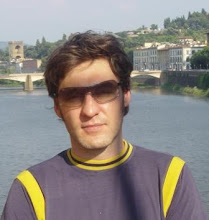I often contribute to other blogs, in particular, those in The Guardian and on the BBC website, generally when they feature the topic of climate change, especially when related to policy and economic issues. It isn’t part of my job description, but I feel that it is part of my role as someone involved in academic research, particularly when I recognise the importance of engaging with people from outside academia on some of the latest research findings, as well as discussing and receiving feedback on a range of topics related to climate change theories and strategies, which most certainly make me a more effective researcher.
Both the Guardian and the BBC promote discussion by commissioning an article by an expert (including 4CMR’s Terry Barker) or personality of some kind (or both, in the case of George Monbiot’s Guardian blog). Having such an article as the basis of a discussion has often enabled me to have a focused dialogue with a range of interesting people, testing the logic and coherence of my argument, learning about other ideas and filling in some of the gaps in my knowledge.
There is, though, a darker side to climate change blogs; there are a group of people who call themselves sceptics but they are not sceptical at all. These are not people who are just not sure that the evidence is sufficient to reach a conclusion.
Tuesday, 28 December 2010
Tuesday, 7 December 2010
Bottled Water – Bottled Gas?
By Tom Berman: Tom currently works for IBM having previously been employed by the Centre for Sustainable Development, Cambridge University.
Years ago priests, shaman, magicians, blessed water, manipulated water and gave it power, today its corporations, government, celebrities, brands.
The idea behind this article came after watching the BBC documentary “The Foods that Make Billions” describing the birth of bottled water industry in the 1970’s and its development into a multi-billion pound industry, that everyday ships water from the French Alps around the world. The following morning I read about Longannet Carbon Capture and Storage (CCS) scheme. Longannet, a coal fired power station in the Firth of Forth, provides electricity to 2 Million people with annual emissions of between 7-8 Million t CO2. The CCS scheme, due to begin operations in 2014, has been designed to capture over 1 million tonnes of CO2 from the energy generated at Longannet.
It struck me as an interesting symmetry; our efforts to sustain society, which bottles and transports water, a resource available (almost) everywhere to (almost) everyone, by “bottling” CO2, the potentially harmful side effects of the generation of energy needed to support such an undertaking.
As a modern Malthus, this article could go on to suggest that a technological solution will never be able to keep pace with the invented, insatiable wants of consumers; wants, created in part by companies needing to find continuous revenue streams, as mirrored by the continual growth needed by the economy. Indeed it seems that for many the only option on the table is to find efficiency through large technological systems. Prof Dave Mackay, Scientific Adviser to DECC, dismisses the mere possibility of making serious inroads into our energy demand in his book Sustainable Energy: Without the Hot Air, thus providing the intellectual justification for increasing the UK’s nuclear capacity - racing to keep up with demand while action is indefinitely deferred, until a new technology removes the problem.
Monday, 6 December 2010
Other blogs are available
For those interested in the events in Cancun, here is one recommended by Cambridge's Zero Carbon Society.
The two blogs I read regularly, each from a different perspective, are RealClimate and Judith Curry.
I recently saw an interesting blog article on cycling in Cambridge.
The two blogs I read regularly, each from a different perspective, are RealClimate and Judith Curry.
I recently saw an interesting blog article on cycling in Cambridge.
Wednesday, 1 December 2010
The Cancun Communiqué
As business leaders, we are used to making decisions on the basis of projected risk and established scientific fact, at this point in time we cannot afford to ignore the undeniable impact of climate change on global populations, natural resources, the economy, and on our businesses.
This week Doug Crawford Brown signed up to the Cancun Communiqué in his capacity as executive director of 4CMR. The Cancun Communiqué is an initiative of the Prince of Wales’s Corporate Leaders’ Group on Climate Change, coordinated by the Cambridge Programme for Sustainability Leadership. The Communiqué is a statement agreed by business leaders to the effect that the adoption of an ambitious, robust and equitable global deal on climate change needs to be agreed in Cancun, a deal able to respond credibly to the scale and urgency of the crisis facing us today, and follows similar initiatives designed to coincide with previous United Nations Climate Change Conference (COP) events.
The Communiqué states the need for progress in a number of priority areas, such as binding targets, finance, technology transfer, agreement on reducing emissions from deforestation, forest degradation, and forest management (REDD); and, monitoring, reporting and verification (MRV). In addition, these priorities should be delivered within a framework alongside a parallel mitigation strategy focusing on GHG reduction opportunities in specific sectors, with agreements in five key areas of action:
Subscribe to:
Comments (Atom)
